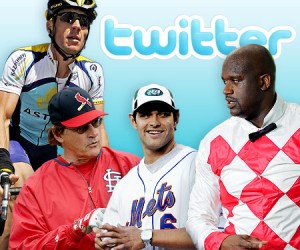
In total, eight media outlets including the the LA Times, Sacramento Bee, and NBC Los Angeles, wrote eleven articles on the incident. The most fascinating aspect of the reporting (a term I use very loosely in this context) was the way they chose to depict what was said.
In place of what I wrote, the "F" was quoted as “(bleep)” and “….”. Granted, I know what I tweeted was "edgy", but that doesn’t make misrepresentation of what was said acceptable. I said, “lets Marbury this mother F up”, not "lets fuck this shit up". Clearly saying “F” implies "fuck", but regardless, it was never actually said, and there's a difference. Let me explain.
If using "F" exudes the same meaning and sentiment as the the word I used it to replace, by using another censoring device within the same context in its stead (i.e. "lets marbury this mother .... up" instead of "lets marbury this mother f up") serves the exact same purpose. So when the media chose to replace my "F" with any of the above, they not only said the same thing I did, they misquoted and misrepresented what I said, making it to seem worse than it actually was when in fact, it was identical to what they said.
You may consider this semantics, but put it within context. If you happen to have an overly polite friend, family member, etc, and you've seen them get mad at someone for saying “f’n" this or "f'n" that, would that seem reasonable? Absolutely not because that person spouting semi-profanities clearly showed restraint by not using the actual word. This means there's a difference between the actual use of a word and implied use of a word, and by portraying it as any different is a perfect example of media misinterpretation.
The interpretations of my quote contrast exactly what is wrong with the media today. In an effort to make an otherwise bland piece about the lowly Clippers and their supposedly disgruntled Power Forward more scintillating, they sacrificed journalistic integrity. No matter how small an increment of sacrifice it was, they did so nonetheless. This may seem trivial to you, but consider that most information we get comes from the media, or secondary sources. If they choose to construe what is said in relation to how beneficial it might be to their reader volume and sales, that’s simply unethical. It doesn’t have to be about obscenities and trade talk, the subject matter can be bigger and more profound.

The newsprint media is trying to figure out how to fix their product's profit generating structure and sensationalist pieces of work are tangible products of the frustration and desperation being felt in that field. But unlike the case with twitters, the news reading public aren’t hoping what’s being written is real and factual, they expect it to be.
Many, including myself, point to the evolution of Internet media as the news prints downfall and that's right for the majority, but another point which shouldn’t be discounted is the loss of of the more prominent sport journalists who've turned to television and left their columns behind. Most fans today probably don't even know PTI star's Tony Kornheiser and Mike Wilbon had syndicated columns across the country.
This situation gave me great insight into the constant battle between sports figures and the media. I can’t recall how many times I’ve heard players comment on how their “words were taken out of context”, but now there’s further validation to that. This is not meant to portray all media as evil and misgiving, but more a point that just because the people writing are from esteemed universities where they probably went to their classes, it doesn’t make them any more reputable morally than the athletes who went to college simply to ball.

comments, suggestions, inquiries, and hate mail can be made out to 35isntenough@gmail.com











0 Response to "Mini Series: Addicts? A look at the Player-Fan Relationship (Media Interpretation)"
Post a Comment